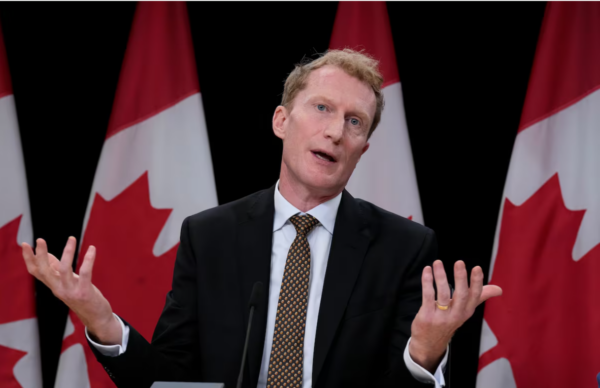
Canada’s Immigration Policy: A Call for Coherence in the Face of Growing Challenges
Immigration is at the heart of Canada’s economic and social fabric. In cities like Brampton, which rely heavily on a steady influx of foreign workers and international students, immigration is not just a matter of policy—it’s essential for the functioning of the local economy. However, the federal government’s recent, haphazard approach to immigration, from visa processing to international student caps, is exacerbating anti-immigration sentiment and undercutting the very foundations that make Canada successful. It’s time for a clearer, more balanced approach that reflects both the needs of the country and the values that have long defined us. And while we’re developing policy, we ask that our elected officials speak up against the blatant anti-immigrant sentiments tarnishing our community.
The Need for Immigration
The reality is simple: we need immigration. Canada’s workforce is aging, and without the steady flow of newcomers, including temporary foreign workers and international students, we face severe labour shortages. Brampton, for example, has seen tremendous growth in its economy and population, most of it driven by immigration. Brampton is seen as a paragon of transit ridership in North America. We can thank international students for that, too. International students studying in Brampton are not only enriching our cultural landscape but are also essential to our labour pool, filling critical roles in a range of sectors.
However, Canada’s immigration policy is increasingly becoming a patchwork of ad hoc fixes. The federal government has been making piecemeal changes without adequate consultation with industry, causing instability in key sectors and stoking fears that immigrants are more of a burden than a benefit in our populace.
Uncoordinated Policies Fuel Anti-Immigrant Sentiments
Immigration Minister Marc Miller recently shared the the government is looking to crack down on the misuse of visitor visas—particularly from countries like India. This issue relates to folks coming in to Canada under the guise of a visitor visa but claiming asylum or finding their way to the US after entry. While there are legitimate concerns about misuse of visas, it is partly in response to another federal policy in August 2020 that allows visitors to apply for work permits from within Canada. This policy is set to expire in February 2025.
Reports also suggest that some visitors with valid visas are being denied entry and encouraged to seek asylum, contributing to a rise in refugee claims at airports. Although the Canada Border Services Agency denies these allegations, immigration lawyers have cited concerns an increase in such cases.
But perhaps no immigration policy is as haphazard as the international study permit cap.
International Students and Canada’s Workforce
Brampton’s postsecondary institutions, like many others across Canada, have long benefited from international students, not only for the tuition revenue but for the skilled labour they provide to employers. International students contribute to the economy while they study and are often eager to stay in Canada after graduation, filling roles in high-demand fields.
Yes, it is often the case that schooling is just a means to PR for many students and the actual education isn’t a priority. This is a reality of our system and instead of admonishing individuals for pursuing legitimate pathways for immigration, we should seize the opportunity to work with postsecondary to fill critical labour shortages and capitalize on economic development.
The decision to limit the number of study permits, while perhaps well-intentioned, was made without adequate consultation with provinces and educational institutions. The result? A climate of uncertainty for students who are unsure whether Canada is still the land of opportunity they once believed it to be, and with record high numbers of Canadians leaving Canada, we cannot afford to lose this reputation.
Not only are postsecondary institutions disrupted, but many employers who are already struggling to find talent will now be in an even worse position when hiring. This policy change, combined with sweeping reforms to post-graduate work permits, will undoubtedly shrink the pool of international students—and workers—that cities like Brampton rely on.
Time for a Clear, Thoughtful Approach
Canada’s immigration system needs a reset. We cannot afford to make policy changes on the fly without considering their broader implications. Businesses in Brampton and across the country need stability and predictability. International students and workers need clarity. And most importantly, we need to ensure that we are upholding the values of inclusion, diversity, and fairness that make Canada a beacon of hope for so many around the world.
Both federal and provincial governments have quietly relied on immigrants, particularly international students, to support a struggling economy. However, as the economic and political landscape surrounding immigration has shifted, the federal government has taken a more critical stance on the very immigration outcomes they helped create. For example, policy discussions now focus on immigration caps as a solution to the housing shortage, despite Canada historically having the lowest housing stock per capita in the G7.
The federal government must develop a coordinated, coherent immigration strategy that balances the needs of the economy with the realities of housing and infrastructure challenges. In Brampton, we need more skilled workers, more housing, and more investments in infrastructure to support a growing population. A better approach to immigration firstly involves robust stakeholder engagement that involves industry, provincial governments, and municipalities that are most acutely affected like Brampton.
Additionally, while anti-immigration sentiment may be on the rise, it is also the responsibility of our elected officials to actively denounce the racism and xenophobia that is clearly becoming more pervasive online and offline. Canada’s success story is built on immigration. We cannot allow short-sighted policies and fragmented approaches to tarnish that legacy. The future of cities like Brampton—and the country as a whole—depends on it. As we conduct our own advocacy efforts on this topic, I invite you to reach out to me at vsingh@bramptonbot.com to share stories on how your business relies on the international student talent pool as we look to quantify their contribution to the local economy.
